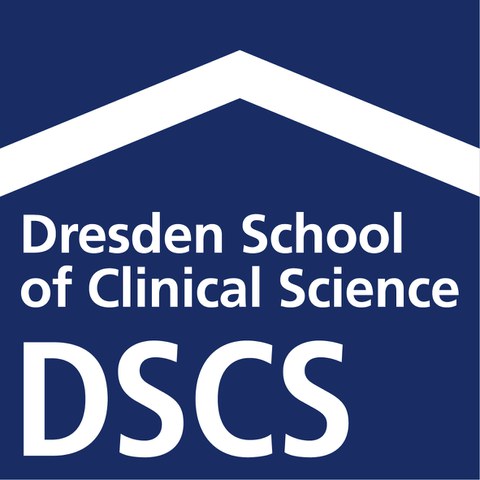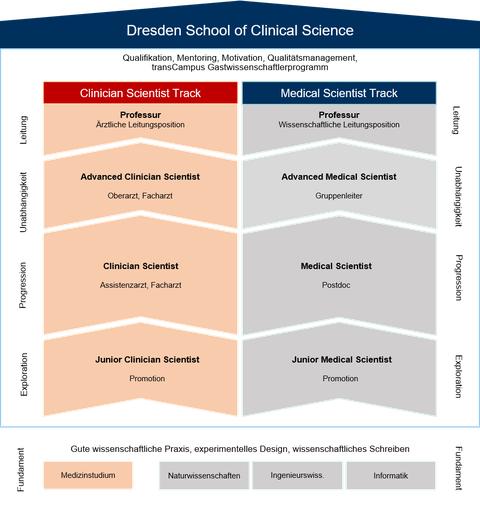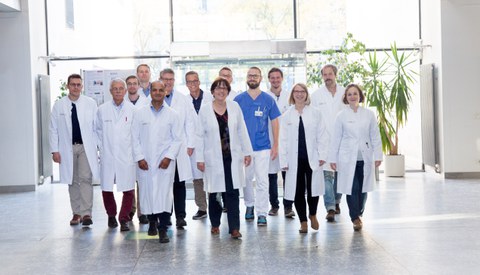Welcome to the Dresden School of Clinical Science (DSCS)
Even if progress in medicine sometimes does not seem fast enough, it is ultimately so rapid that ever earlier specialization is becoming necessary - both in clinical work and in science. At the same time, the spectrum of translational research is expanding far beyond the traditional field of biological and genetic research with increasing digitalization and the development of new materials, especially in Dresden.
In view of this "divergence", bridges or "interfaces" between the sciences and clinical application are more important than ever before. Clinician scientists and medical scientists have a clinical, scientific or engineering background and work on overlapping medical issues. They are an essential driver of medical progress because they align scientific and technical advances with clinical needs and mobilize the latest scientific and technological advances to address medical issues.
The task of the Dresden School of Clinical Science (DSCS) is to promote the training of clinician scientists and medical scientists. This support extends from the doctoral phase in the Carus Doctoral College or one of the associated collaborative research projects through the decisive phase of the postdoctoral period or specialist training to the habilitation as an "Advanced Clinician Scientist". Through interdisciplinary and interprofessional communication platforms and the bundling of curricula, the DSCS creates optimal conditions for close and sustainable cooperation between clinical research and basic biomedical research. Common to all funding lines is the competitive selection process.
On these pages you will find further information about the participating programs and institutions. We welcome your suggestions and ideas.
Prof. Dr. med. Björn Falkenburger
Speaker of the DSCS
The Dresden School of Clinical Science (DSCS) bundles and interlinks the funding structures of the Faculty of Medicine for scientific career paths in university medicine with the aim of linking excellence in research even more closely and sustainably with the challenges of patient care. It creates"interfaces" between clinically and scientifically trained researchers and between young and advanced scientists from different disciplines. It aims to inspire young doctors for science and accompany them on their career path as clinician scientists. The DSCS also supports young scientists(medical scientists) who work on patient-related topics and whose research builds a bridge between the understanding of mechanisms and the treatment of diseases.
Through interdisciplinary and interprofessional communication platforms and the bundling of curricula, the DSCS creates optimal conditions for close and sustainable cooperation between clinical research and basic biomedical research.



